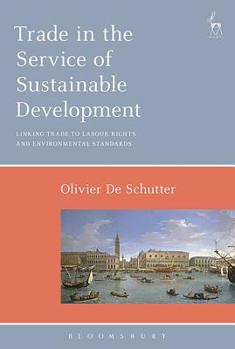Trade in the Service of Sustainable Development: Linking Trade to Labour Rights and Environmental Standards
Select Format
Select Condition 
Book Overview
In the Bretton Woods era, trade liberalization, the improvement of labour rights and working conditions, and the strengthening of environmental policies, were seen as mutually supportive. But is this always true? Can we continue to pretend to protect the rights of workers and to improve environmental protection, particularly through climate change mitigation strategies, within an agenda focused on trade liberalization? Is it credible to pursue trade policies that aim to expand the volumes of trade, without linking such policies to labour and environmental standards, seen as 'non-trade' concerns? This book asks these questions, offering a detailed analysis of whether linkage is desirable and legally acceptable under the disciplines of the World Trade Organization (WTO). It concludes that trade can work for sustainable development, but only if we see it as a means for social and environmental progress, including climate change mitigation, and if we avoid fetichizing it as an end to be pursued for its own sake.
Format:Paperback
Language:English
ISBN:1509918345
ISBN13:9781509918348
Release Date:December 2017
Publisher:Hart Publishing
Length:224 Pages
Weight:0.79 lbs.
Dimensions:0.6" x 6.1" x 9.1"
Related Subjects
LawCustomer Reviews
0 rating





